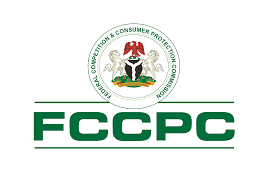From Fred Ezeh, Abuja
The Federal Competition and Consumer Protection Commission (FCCPC) has said that based on all relevant regulations, including the one from the Nigerian Electricity Regulatory Commission (NERC) and the Nigerian Electricity Management Services Agency (NEMSA), the distribution companies (DisCos) should bear the cost of replacing consumers’ prepaid metres, and not the other way round.
The FCCPC, however, said henceforth, it would take unfriendly actions against DisCos or other stakeholders along the electricity management value chain that announce policies or decisions that could defraud the consumers. The FCCPC’s executive vice chairman, Tunji Bello, gave the warning in Abuja, yesterday, at a stakeholders’ meeting on electricity metre issues, with representatives from the 12 DisCos, NERC, NEMSA, and metre manufacturing company, in attendance. He said by virtue of Section 17(a) of the FCCPA, the commission was mandated to administer and enforce consumer protection laws, ensuring fairness in market practices.
Bello, specifically made reference to the recent decision of an electricity distribution company, Ikeja Electricity Distribution Company (IKEDC), to phase-out the Unistar prepaid metre model with effect from November 14, 2024, which had generated anxiety, panic and suspicion from the consumers.
He said: “This decision poses another challenge for consumers, who may face undue hardship if the transition is mishandled. Sadly, the announcement was devoid of information on whether consumers will be required to cover the cost of replacing metres or not.
“Also, the possibility of consumers being placed on arbitrary estimated billing during the transition is also a concern, as it would violate existing rules. This announcement has understandably caused widespread anxiety among consumers, who are already dealing with significant difficulties within and outside the electricity industry. “From our analysis of consumers’ complaints, it is clear that electricity consumers routinely endure problems related to billing, metering, transformers, connections, disconnections, and customer service, among others. Regrettably, many of these challenges, from billing inaccuracies to inadequate customer care, are human-made. They stem from systemic inefficiencies and a troubling culture of impunity among certain service providers.
“Electricity should be reliable, accessible, and affordable. Unfortunately, the Nigerian electricity sector has long grappled with a range of consumer issues.” The FCCPC boss, however, explained that the objective of the meeting was not to castigate or witch-hunt any individual or company, but to ensure every metering process remains transparent and accountable, prioritising the interests of consumers.
He said the meeting was also aimed at clarifying the phase-out process and advise DisCos to bear the replacement costs for their metres without imposing additional charges on consumers.
“We will enforce strict adherence to regulatory guidelines, ensuring consumers are neither unfairly charged nor randomly subjected to estimated billing,” he said.
He further stated that the engagement would address broader issues surrounding metering in the electricity industry which include non-reimbursement for metre purchases, delays in metre installation and repairs, estimated billing of customers with faulty metres, consumer exploitation by metre installers, token loading challenges, and inadequate customer service.
NEMSA’s representative, Okeme Obiabo, in his remarks, appreciated the FCCPC for the idea of such a meeting with all stakeholders involved in the electricity management, hoping for an outcome that would be beneficial to the consumers.
Similarly, Zubairu Babatunde from the NERC said the commission was always committed to any cause that would ensure access to affordable and steady power for Nigerians, promising cooperation with other stakeholders to ensure efficient and affordable electricity to Nigerians.
